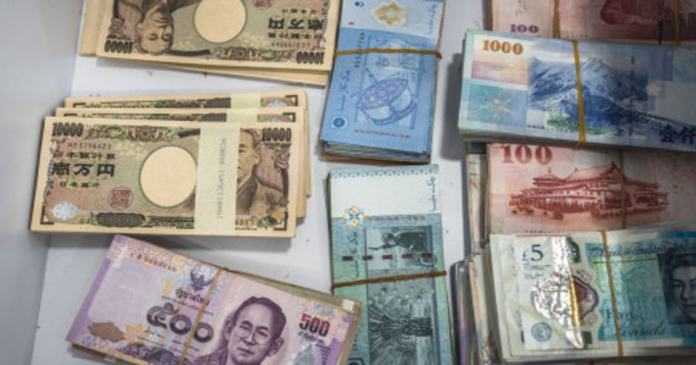Investors braced for the US Federal Reserve meeting later this week as chances for a future stop in rate hikes rise. The Taiwan dollar and Thai baht led losses among weak Asian currencies.
Most Asian currencies slip: The Taiwanese dollar dropped by around 0.5%, reaching its lowest level since July 11, and was headed for its fourth straight session of losses.
Market analysts anticipate a 25 basis point rate increase as the Federal Open Market Committee meeting closes late on Wednesday. All eyes are on Fed Chair Jerome Powell’s speech regarding the trajectory of rate hikes in the near future.
The dollar index, which gauges the strength of the dollar versus six significant competitors, was 101.02 at 3:40 GMT.
Under Chair Powell, the Fed has never taken the markets by surprise. Standard Chartered analysts wrote a report stating that, in light of recent disinflationary tendencies, the Fed is likely to finish after delivering this rate hike, making forward guidance crucial.
Investors, who have by far not been bullish about the country’s recovery, are also looking forward to a Politburo meeting in China later this week to propose stimulus measures to bolster its lagging economy.
Yeap Jun Rong, a market analyst from IG, stated that recent stimulus measures to increase consumer spending on electronics and automobiles “failed to provide much conviction that they will be sufficient to uplift the downbeat growth conditions, with mounting hopes on the China Politburo meeting this week for more follow-through.”
“Thailand’s Political Unrest Affects Baht and Equities”
As thousands of pro-democracy demonstrators gathered on Sunday to support Pita Limjaroenrat, the leader of the Move Forward party, after opponents blocked his most recent bid to become prime minister, political unrest in Thailand kept the baht and equities on edge.
Despite Thailand’s equities edging slightly higher, the baht decreased by as much as 0.5% to trade at roughly 34.6 per dollar.
Other Asian currencies, including the Singapore dollar, Malaysian ringgit, and Indonesian rupiah, fluctuated between flat to slip down 0.4%. The South Korean won increased 0.1% against the general trend.
However, Asian stocks largely had favourable trading, with South Korea, Indonesia, and Malaysia all rising between 0.2% and 0.9%.
The closure of government offices in the capital region resulted in the closure of the foreign exchange markets in the Philippines; trade resumed on Tuesday.
However, the country’s stocks increased by 0.2%.

